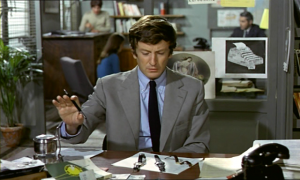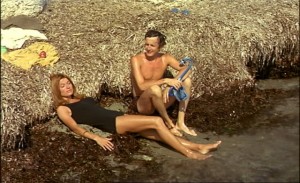Films by Michaelangelo Antonioni
The Film Center’s ongoing retrospective of the work of Italy’s greatest living filmmaker, Michelangelo Antonioni, offers two noteworthy programs this Friday night. First is perhaps the most unjustly neglected of Antonioni’s early features, Lady Without Camelias (La signora senza camelie, 1953), a caustic Cinderella story about a Milanese shop clerk (Lucia Bose) who briefly becomes a glamorous movie star. One of the cruelest and most accurate portraits of studio moviemaking and the Italian movie world that we have, it’s informed by a visually and emotionally complex mise en scene that juggles background with foreground elements in a choreographic style recalling Welles at times. Though it’s only Antonioni’s third feature, and it’s episodic structure necessitates a somewhat awkward expositional method, this is mature filmmaking that leaves an indelible aftertaste.
Then comes a program of shorts made between 1947 and 1953, mainly “apprentice” works, though no less impressive and commanding for all that; the only conventional and fairly forgettable one is the last in the program, The Villa of Monsters (1950)–to be shown, unlike the others, only with French and German subtitles. Perhaps the most significant stylistic trait to be found in most of the work here is the pan suddenly linking foreground with background, the animate with the inanimate. Read more


